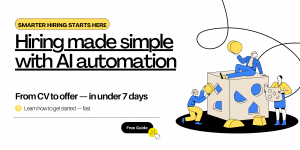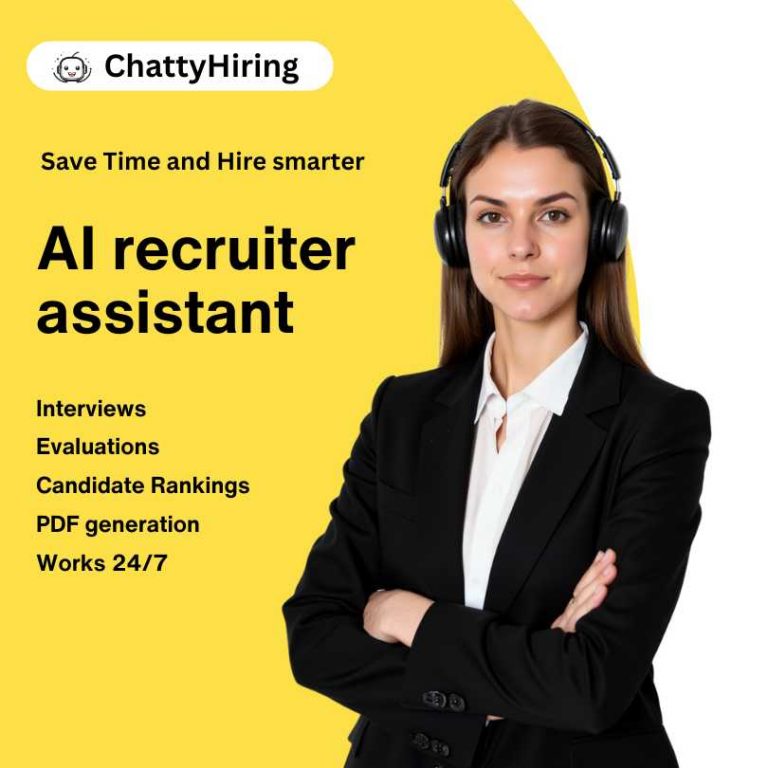AI-based candidate assessment tools have transformed the recruitment landscape, redefining how organizations identify and evaluate talent in a highly competitive market. Picture this: a revolutionary technology that streamlines hiring processes, enhances decision-making accuracy, and saves valuable time and resources for HR teams. As AI continues to revolutionize the way we approach talent acquisition, it’s essential to explore the key aspects and best practices associated with leveraging AI-based candidate assessment tools effectively.
The Role of AI-based Candidate Assessment Tools in Modern Recruiting
In today’s competitive recruitment landscape, the implementation of AI-based candidate assessment tools has revolutionized the way organizations identify and evaluate talent. Leveraging the power of artificial intelligence in candidate assessment not only streamlines the recruitment process but also enhances the overall quality of hires. Let’s delve into the key aspects that highlight the significance of AI in modern recruiting.
Benefits of Implementing AI in Candidate Assessment
Enhanced Efficiency: AI streamlines the initial screening process by automatically sorting through resumes and highlighting the most relevant candidates based on predefined criteria
Improved Accuracy: AI algorithms analyze candidate data objectively, minimizing human bias in the selection process and ensuring fair evaluations.
Cost Savings: By automating repetitive tasks such as resume screening and initial assessments, AI-based tools help save valuable time and resources for HR teams.
- Scalability: AI tools can handle a large volume of candidate applications efficiently, allowing organizations to scale their recruitment efforts without compromising quality.
Impact of AI on Streamlining Recruitment Processes
Faster Time-to-Hire: AI speeds up the candidate selection process, enabling recruiters to identify top talent quickly and reduce time-to-fill metrics.
Data-Driven Insights: AI tools provide valuable data analytics and insights into candidate performance, enabling recruiters to make informed decisions based on concrete metrics.
Enhanced Candidate Experience: By streamlining the recruitment process and providing prompt feedback to candidates, AI-based tools contribute to a positive candidate experience and strengthen employer branding.
Integrating AI-based candidate assessment tools into your recruitment strategy can significantly improve the efficiency and effectiveness of your hiring process, leading to better outcomes for both candidates and organizations.
Key Features to Look for in AI-based Candidate Assessment Tools
When selecting AI-based candidate assessment tools for your recruitment process, it’s essential to consider a range of features that can enhance your hiring efficiency and effectiveness. Let’s explore the key features to prioritize in AI-powered assessment tools:
Automated Resume Screening and Keyword Matching
Advanced Algorithms: Look for tools that use sophisticated algorithms to scan and analyze resumes quickly, matching candidates’ qualifications with job requirements.
Customizable Criteria: Opt for tools that allow you to define specific keywords, skills, and qualifications to tailor the screening process to your organization’s unique needs.
Integration Capabilities: Choose tools that seamlessly integrate with your existing applicant tracking system (ATS) to ensure a smooth and efficient resume screening workflow.
AI-powered Video Interview Analysis
Behavioral Assessment: Seek tools that use AI to analyze candidate responses in video interviews, assessing non-verbal cues, communication skills, and cultural fit.
Automated Feedback: Select tools that provide detailed feedback on candidates’ interview performance, highlighting strengths and areas for improvement to aid in decision-making.
Interview Scheduling: Consider tools that offer AI-driven scheduling capabilities to streamline the interview process and coordinate multiple interviews seamlessly.
Behavioral and Skills Assessments through AI Algorithms
Competency Mapping: Look for tools that use AI algorithms to assess candidates’ competencies and skills based on their responses to situational and behavioral questions.
Predictive Analytics: Opt for tools that leverage predictive analytics to forecast candidate performance and potential cultural alignment within the organization.
Personalized Insights: Choose tools that provide personalized insights into each candidate’s strengths, weaknesses, and overall suitability for the role based on AI-driven assessments.
By prioritizing these key features in your selection of AI-based candidate assessment tools, you can optimize your recruitment process and identify top talent more effectively. For an example of how a leading company implements AI in candidate assessments, check out Google’s recruitment technology.
Best Practices for Integrating AI-based Candidate Assessment Tools into Your Recruitment Strategy
Incorporating AI-based candidate assessment tools into your recruitment strategy requires a thoughtful approach to ensure optimal outcomes and efficiency in your hiring process. Here are some best practices to consider when integrating AI tools:
Ensuring Fairness and Bias Reduction in AI Selection
Diverse Data Training: Utilize diverse datasets during the AI training phase to mitigate biases and ensure fair assessments across all candidates.
Regular Audits: Conduct periodic audits of the AI algorithms to identify and address any potential biases that may impact candidate evaluations.
Transparency and Accountability: Maintain transparency in how AI is used in the recruitment process to build trust with candidates and ensure accountability for hiring decisions.
Customizing AI Tools to Suit Specific Job Roles and Requirements
Tailored Algorithms: Customize AI algorithms to align with the specific skills, competencies, and attributes needed for different roles within your organization.
Job Relevance: Ensure that the AI-based assessments are directly relevant to the job requirements to accurately evaluate candidates’ suitability for the position.
Feedback Loop: Establish a feedback loop with hiring managers to continuously refine and optimize the AI tools based on real-world hiring experiences.
Training Internal Teams for Effective Utilization of AI Tools
User Training Programs: Provide training and support to HR teams and hiring managers on how to effectively use and interpret the insights provided by AI-based candidate assessment tools.
Continuous Learning: Encourage continuous learning and upskilling to leverage the full potential of AI tools and stay updated on industry best practices.
Collaborative Approach: Foster collaboration between HR professionals and AI experts to leverage both domain expertise and technical knowledge in optimizing recruitment strategies.
By following these best practices, organizations can maximize the benefits of AI-based candidate assessment tools and streamline their recruitment processes while ensuring fair and effective evaluations of job applicants.
Overcoming Challenges in Implementing AI-based Candidate Assessment Tools
While the integration of AI-based candidate assessment tools can bring numerous benefits to the recruitment process, organizations may encounter challenges that need to be addressed for successful implementation. Let’s explore some common hurdles and strategies for overcoming them:
Addressing Data Privacy and Security Concerns
Compliance Regulations: Ensure that AI tools comply with data protection regulations such as GDPR to safeguard candidate information and maintain trust.
Secure Data Handling: Implement robust security measures to protect candidate data from breaches and unauthorized access throughout the assessment process.
Transparency Policies: Communicate clearly with candidates about how their data will be used and stored by AI algorithms to promote transparency and accountability.
Handling Employee Resistance to AI Adoption in Recruitment
Change Management: Provide comprehensive training and resources to employees to familiarize them with AI tools and alleviate any apprehensions about automation.
Demonstrate Value: Highlight the benefits of AI-based assessment tools, such as time savings, improved candidate quality, and enhanced decision-making, to garner employee buy-in.
Feedback Mechanisms: Encourage open communication and feedback from employees during the implementation phase to address concerns and refine the use of AI tools.
Integrating AI Tools with Existing HR Systems and Processes
Compatibility Checks: Conduct thorough compatibility checks to ensure seamless integration of AI tools with existing HR systems and workflows.
Pilot Testing: Start with small-scale pilot testing of AI tools within specific departments to identify and resolve integration issues before full deployment.
Collaboration with IT Teams: Collaborate closely with IT teams to address technical challenges and optimize the integration of AI tools with HR systems for maximum efficiency.
By proactively addressing these challenges and implementing appropriate strategies, organizations can successfully leverage AI-based candidate assessment tools to enhance their recruitment processes and make informed hiring decisions. For insights on AI implementation in recruitment at an industry-leading company, explore Amazon’s recruitment technology.
Evaluating the ROI of AI-based Candidate Assessment Tools
Measuring the return on investment (ROI) of implementing AI-based candidate assessment tools is crucial for assessing the effectiveness and efficiency of your recruitment strategy. Let’s explore key metrics and considerations when evaluating the ROI of AI tools in candidate assessment:
Tracking Key Metrics for Success in AI Recruitment
Time-to-Fill: Measure the time taken to fill a job vacancy from the initial posting to the final hiring decision, comparing the efficiency of AI-driven assessments to traditional methods.
Cost per Hire: Calculate the total cost incurred in the recruitment process and analyze how AI tools reduce costs related to sourcing, screening, and interviewing candidates.
Quality of Hires: Assess the quality of hires made through AI tools by tracking retention rates, performance evaluations, and cultural fit within the organization.
Calculating Time and Cost Savings with AI Tools
Automation Efficiency: Determine the percentage of manual tasks automated by AI tools, such as resume screening and candidate communication, to quantify time savings.
Reduction in Bias: Analyze the impact of AI tools in reducing bias during candidate assessment, leading to a more diverse and inclusive hiring process.
Resource Optimization: Evaluate the reallocation of HR resources and time saved through AI tools, allowing teams to focus on strategic initiatives and candidate engagement.
Measuring Improvement in Quality of Hires through AI-based Assessments
Performance Metrics: Use performance indicators such as employee productivity, engagement levels, and performance reviews to assess the impact of AI-driven candidate assessments.
Candidate Feedback: Gather feedback from candidates on their experience with AI tools during the recruitment process to gauge satisfaction and perception of fairness.
Continuous Improvement: Implement feedback loops and data-driven insights from AI assessments to continuously refine and enhance the recruitment process for better quality hires.
By analyzing these metrics and considerations, organizations can gain valuable insights into the tangible benefits of using AI-based candidate assessment tools, justify the investment, and optimize their recruitment strategies for long-term success. For a comprehensive overview of AI-driven recruitment practices, explore IBM’s talent acquisition solutions.
How do AI-based candidate assessment tools improve the recruitment process?
AI-based candidate assessment tools enhance the recruitment process by automating repetitive tasks like resume screening, analyzing candidate data objectively to reduce bias, and providing valuable insights for efficient decision-making, ultimately streamlining the hiring workflow.
What key features should I look for in AI-based candidate assessment tools?
When selecting AI tools, prioritize features like automated resume screening with customizable criteria, AI-powered video interview analysis for behavioral insights, and AI algorithms for assessing skills and competencies tailored to specific job roles.
How can organizations ensure fairness when using AI in candidate assessments?
To maintain fairness, organizations should utilize diverse data for AI training, conduct regular audits to address biases, ensure transparency in AI usage to build candidate trust, and implement accountability measures for hiring decisions made using AI tools.
What challenges might organizations face when integrating AI tools into their recruitment strategy?
Organizations may encounter challenges related to data privacy and security, employee resistance to AI adoption, and integration issues with existing HR systems. Addressing these challenges through compliance measures, change management strategies, and collaboration can facilitate successful AI implementation.
How can organizations measure the ROI of AI-based candidate assessment tools?
Organizations can evaluate the ROI of AI tools by tracking key metrics such as time-to-fill, cost per hire, and quality of hires, calculating time and cost savings with AI automation, and measuring the improvement in candidate quality and performance through AI-driven assessments.
-

A passionate advocate for the future of HR innovation. With expertise in leveraging AI to revolutionize recruitment processes, Carlos has a clear vision: empower HR teams while creating meaningful candidate experiences.
View all posts





